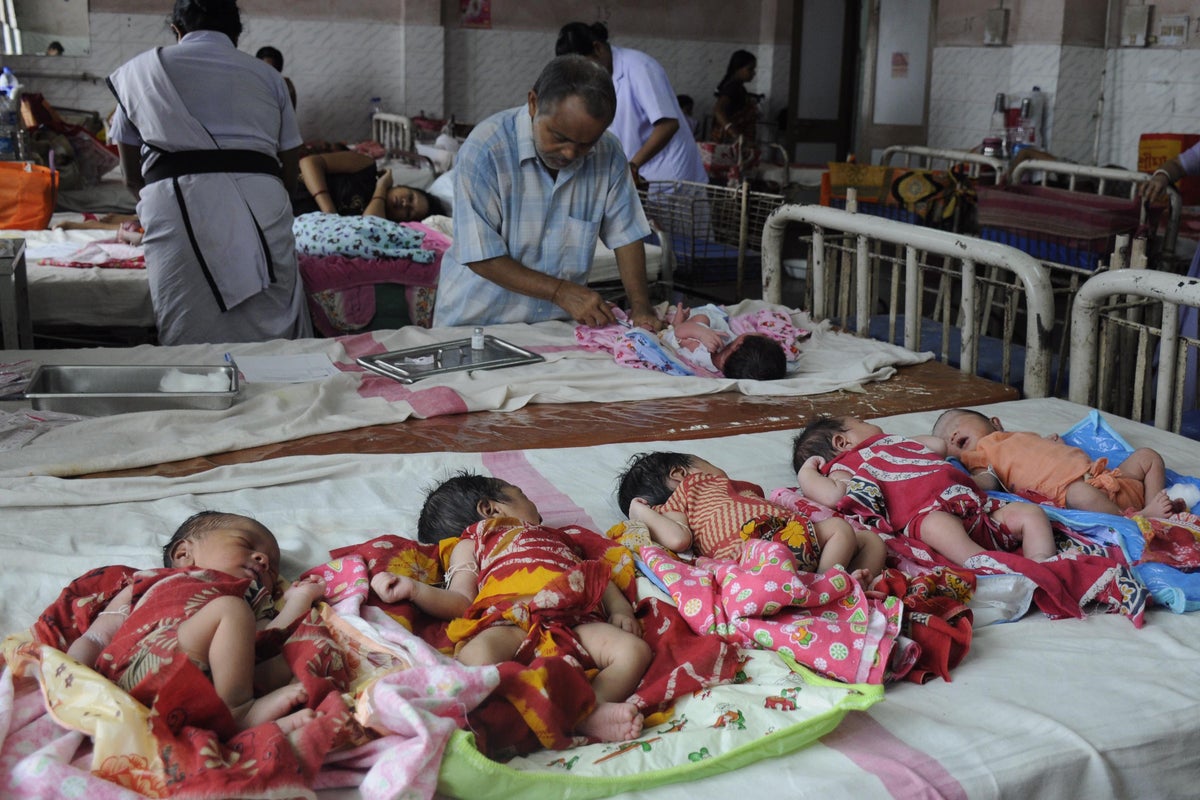Your support helps us to tell the story
From reproductive rights to climate change to Big Tech, The Independent is on the ground when the story is developing. Whether it’s investigating the financials of Elon Musk’s pro-Trump PAC or producing our latest documentary, ‘The A Word’, which shines a light on the American women fighting for reproductive rights, we know how important it is to parse out the facts from the messaging.
At such a critical moment in US history, we need reporters on the ground. Your donation allows us to keep sending journalists to speak to both sides of the story.
The Independent is trusted by Americans across the entire political spectrum. And unlike many other quality news outlets, we choose not to lock Americans out of our reporting and analysis with paywalls. We believe quality journalism should be available to everyone, paid for by those who can afford it.
Your support makes all the difference.Read more
A senior gynaecologist in Assam, a northeastern state of India, is under investigation after performing 21 emergency caesarean section (C-section) deliveries within a single shift.
Dr Kantheswar Bordoloi, who serves as the senior medical officer at Morigaon Civil Hospital, carried out 21 lower segment caesarean section (LSCS) deliveries between 3.40pm local time on 5 September and 1.50am on 6 September.
The local administration issued a formal show-cause notice to the doctor – asking him to explain why he should not face disciplinary action – raising serious concerns about the safety and well-being of the mothers and newborns involved.
The notice demanded that Dr Bordoloi submit detailed reports for each case within three days, according to the Hindustan Times.
The administration specifically requested information about whether proper sterilisation procedures were followed, whether any foetal distress cases were documented, details of newborn care in the Sick Neonatal Care Unit (SNCU), and the roles of the assisting medical staff.
“This raises a few serious concerns and hence, in this regard, you are hereby directed to submit a comprehensive report for each of the above-mentioned cases,” additional district commissioner for health Nitisha Bora said in the notice.
Officials said that both preoperative and postoperative medical records were inadequately maintained, which could compromise infection control measures and increase the risk of maternal and infant complications.
“Such detailed documentation is imperative for strengthening infection control protocols and for preventing maternal and infant morbidity and mortality,” the notice added.
However, Dr Bordoloi defended his actions, saying that handling multiple surgeries in a short period is not unusual in India’s busy public hospitals.
He explained that in uncomplicated cases, a typical C-section can take as little as 15 minutes, and the hospital is equipped with two operating tables, allowing continuous sterilisation without compromising safety.
“I was handling emergency cases one after another, and the numbers unexpectedly shot up. I worked quickly, but all necessary medical procedures were followed,” he said, according to The Assam Tribune.
“What I have done is nothing unusual, and other doctors also perform many surgeries at such a pace. Perhaps someone complained against me,” he said.
He added that 19 out of the 21 mothers and newborns had been discharged in stable condition, while two remain hospitalised, including one who was transferred to Gauhati Medical College and Hospital, one of the region’s premier medical institutions.
According to a paper titled “Alarming Trends of Cesarean Section—Time to Rethink: Evidence From a Large-Scale Cross-sectional Sample Survey in India”, the rate of C-section deliveries has increased significantly over time, rising from about 17 per cent in 1998-99 to over 21 per cent in recent years.
The paper, published in 2023, noted that better-educated women who had at least four prenatal checkups, came from wealthier families, or lived in cities, were much more likely to have a C-section.
Some studies have pointed to a correlation between C-section births and an increased likelihood of diagnoses for autism spectrum disorder and ADHD, though these were unable to prove that the method of birth caused these diagnoses.
In 2018, an article in The Lancet warned of what it called a rising “caesarean epidemic”. The outlet said that “caesarean section – the most common surgery in many countries around the world – is a procedure that can save women’s and babies’ lives when complications occur during pregnancy or birth”.
“However, caesarean section use for non-medically indicated reasons is a cause for concern because the procedure is associated with considerable short-term and long-term effects and health-care costs. Caesarean section use has increased over the past 30 years in excess of the 10-15 per cent of births considered optimal, and without significant maternal or perinatal benefits.”
Last month in Assam a fake doctor who performed over 50 caesarean sections and gynaecological surgeries over a decade was arrested while operating in a private hospital. Pulok Malakar’s medical certificates were found to be fake, prompting a crackdown by Assam’s anti-quackery unit.

